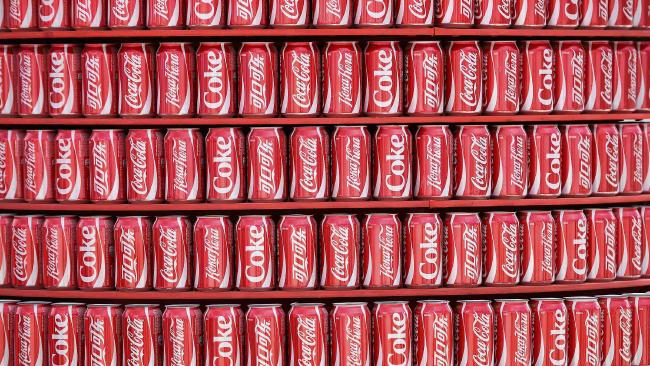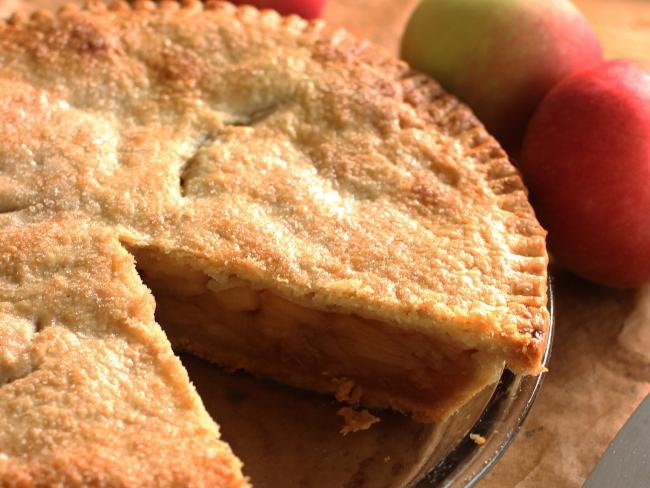
IT’S becoming a public enemy up there with the likes of fat, salt and smoking.
Now a much-anticipated report has put sugar barons on notice, recommending a 10-20 per cent “sugar tax” on soft drinks and moves to limit the marketing and promotion of sugary foods to children.
Public Health England’s document has been more than a year in the making and has slammed the food-friendly environment that has left the UK bulging at the seams.
“The whole food environment and culture has changed slowly over the last 30 to 40 years. There are now more places to buy and eat food which is, in real terms, cheaper, more convenient, served in bigger portion sizes and subject to more marketing and promotions than ever before,” it said, adding that the continually expanding swath of restaurants, cafes and fast-food means simple labelling laws aren’t enough.
The public health body is calling for a 10-20 per cent tax on sugary drinks which are the main single source of sugar for school-aged children. It also wants to see a crackdown on marketing and promotions that target children directly, better labelling an overhaul of public facilities and messages like the “five a day” campaign to ensure they are cutting through.
“It is likely that price increases on specific high sugar products like sugar sweetened drinks, such as through fiscal measures like a tax or levy, if set high enough, would reduce purchasing at least in the short term,” the report said.

Sugar is becoming in the latest battleground in the fight against global obesity following on from fat and salt. It’s estimated to make up 12-15 per cent of UK diets, much of which is disguised in sauces, mayonnaise, cereals or alcohol. The public health body wants it cut back to less than five per cent in accordance with World Health Organisation guidelines, to prevent a host of health problems from obesity to diabetes and dental decay which cost billions a year in healthcare.
Celebrity chef Jamie Oliver has thrown his weight behind the cause, publishing a “Sugar Manifesto” and calling for 20 pence to be added to the price of every litre of soft drink similar to the 10 per cent per litre added to the price in Mexico. He also wants a ban on junk food marketing before 9pm on television and clearer labelling laws including a standard measurement of teaspoons and traffic light system showing how much sugar is in a particular item.
But despite the high-profile support, the recommendations are unlikely to come into effect. A spokesman for UK Prime Minister David Cameron has said he would not support the idea. The British Soft Drinks Association director general Gavin Partington said they “recognise industry has a role to play in tackling obesity” but don’t believe it has had a significant impact.
Rethink Sugary Drink0:30

Did you know there are about 10 teaspoons of sugar in a can of regular soft drink?
- October 28th 2013
- 2 years ago
- /video/video.news.com.au/News/
In Australia, a recent survey found more than 80 per cent of people are in favour of a tax on sugary drinks which could earn the government $250 million a year to fight obesity. At present, almost two in three Australian adults are obese or overweight, with 10 per cent more obese people than 20 years ago, according to government statistics.
Nutritionist Susie Burrell said she would “absolutely” love to see a “junk tax” introduced in Australia that goes beyond sugar to cover fast food, confectionary and soft drinks.
“Isolating sugar is failing to look at the complexity of nutrition and the way people eat. Portion size and fried foods are just as big an issue as sugar is,” she told news.com.au. “Any scheme that would generate revenue to be used in the treatment of obesity, Type 2 diabetes and heart disease would be welcomed.”
“As sugar based drinks are closely related to weight gain and a number of disease risk factors it makes sense to tax these foods as a way to help pay for the enormous health costs associated with overweight and obesity in Australia.”
The department of health and Coca-Cola have failed to respond to requests for comment.
Do you support the idea of a tax on sugar? Continue the conversation on Twitter @newscomauHQ | @Victoria_Craw
Originally published as Beginning of the end for sugar
